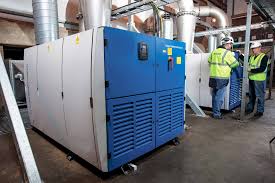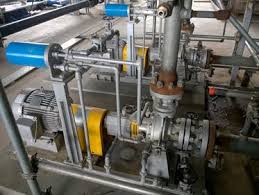This article focuses on problems associated with boiler system and the various means of treatment.
1. Boiler Water
In industries, steam is used as a means of transferring heat energy. The steam is usually generated using water boilers that are heated under controlled conditions. This results in the production of energy which is then used for many different things such as cooking, heating, chemical reactions etc.
The steam usually dissolves other materials thereby creating problems. The major problems are: scale, corrosion, and boiler water carryover and sludge deposition. Therefore, there is need for boiler water treatment.

Read Also: Water Cooling Systems in Industrial Waste and Water Treatment
Boiler Water Treatment
Industrial boiler water treatment includes:
- The use of oxygen scavengers to absorb oxygen thereby preventing oxygen corrosion.
- The use of sludge conditioners to help prevent suspended solids baking onto heat transfer surfaces.
- The use of pH control products to help prevent corrosion.
- The use of antifoams to minimize boiler water carryover.
- The use of amines to protect the condensate system from oxygen and carbondioxide corrosion.
In conclusion, the use of boiler system for heating results in problems such as scale and sludge deposition. These problems must be treated.
Read Also: Water-borne Diseases, Causes, and Preventive Measures
Boiler water system is used for heating under controlled conditions. The problems created from the use of boilers can be treated using oxygen scavengers, sludge conditioners, pH as well as antifoams.

